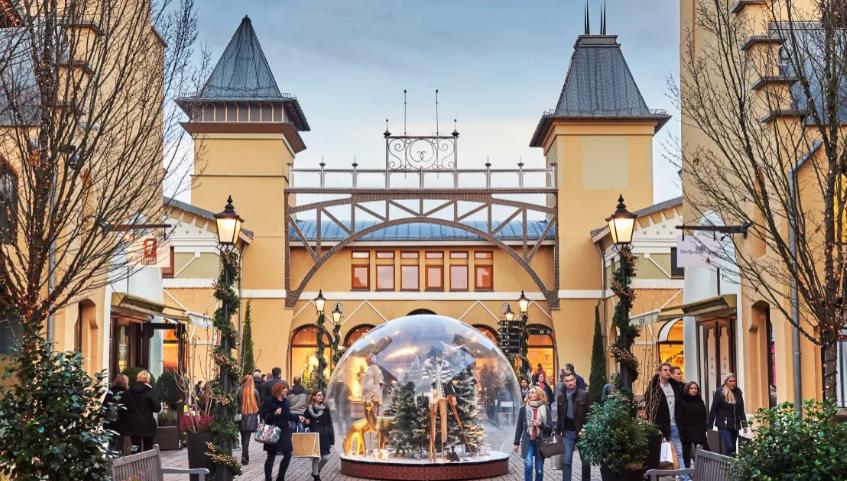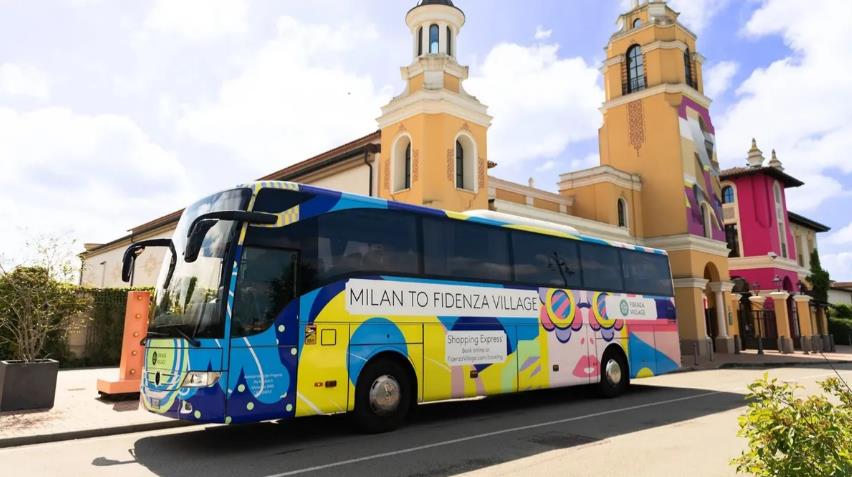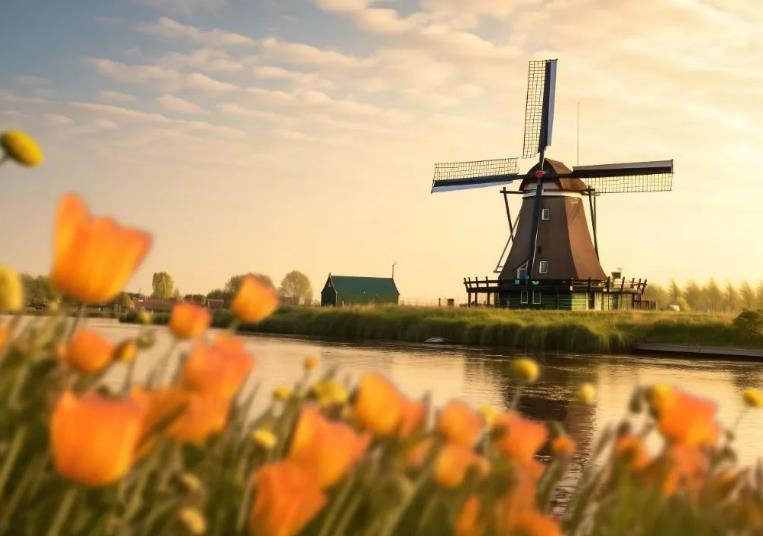https://uk.trip.com/moments/destination-padua-1616/
2025 Padua Travel Guide: Must-see attractions, popular food, hotels, transportation routes (updated in September)
Padua Today's weather
Mostly cloudy 16-29℃

Trending in Padua
Popular Attraction in Padua
The Basilica of St. Anthony
(8)Prato della Valle
(6)Palazzo del Capitanio
(1)All Trip Moments about Padua
Palazzo della Ragione: Padua’s Grand Hall of Justice and Imagination
#cityplaybook #stunningview Standing proudly in the heart of Padua, the Palazzo della Ragione is a masterpiece of medieval civic architecture. Built in 1218 as a town hall and courthouse, this massive rectangular structure is known for housing one of the largest medieval halls in Europe—the majestic Salone—with no internal supports. Step inside and you’ll be awed by a vast wooden ceiling shaped like an upside-down ship hull, and walls covered in an incredible cycle of 14th-century frescoes illustrating astrology, mythology, and scenes of daily life—each painting a glimpse into the medieval worldview. Below the hall, the ground floor opens into lively market arcades, continuing a centuries-old tradition. The building connects Piazza delle Erbe and Piazza della Frutta, making it not only an artistic treasure but also a vibrant gathering place for locals and travelers alike. More than a monument, the Palazzo della Ragione is a living chapter of Padua’s civic pride and artistic soul. Location: Piazza delle Erbe, Padua, Veneto, Italy #PalazzoDellaRagione #PaduaItaly #MedievalMasterpiece #ItalianFrescoes #CityPlaybook #HistoricVeneto #SaloneDiPadovaAkter Tania3Italy 8-day mini-vacation and romantic trip
The long holiday is coming, planning to go to Italy? Don’t miss this 8-day travel guide to make your trip to Italy more exciting! -- Italy, the birthplace of ancient Roman civilization, the Colosseum has witnessed the vicissitudes of thousands of years of history. From the magnificent snow scenery of the Alps🏔️ to the water city style of Venice🚣, every place exudes strong regional characteristics. -- 🎉Travel route: D1: Arrive in Milan and enjoy a full day of free activities! After making arrangements for your hotel, you can start exploring this fashionable city! D2: Visit Our Lady of Grace and feel the tranquility and mystery of religion. D3: Lake Garda – Centro Storico Sirmione – Juliet’s House – Verona Arena – Piazza Venezia. Travel between history and nature, and experience the classicism and romance of Italy. D4: Piazza San Marco – St. Mark’s Campanile – Doge’s Palace – Rialto Bridge. Go deep into the heart of Venice and appreciate the unique charm of the water city. D5: Uffizi Gallery - Accademia Gallery of Florence - Church of San Giovanni al Mosnari. Immerse yourself in the sea of art and feel the Renaissance atmosphere of Florence. D6: Piazza Siena – Siena Cathedral – Old Town of Siena. Stroll through the ancient streets and experience the history and culture of Siena. D7: Visit Piazza Navona and feel the unique charm and vitality of Rome. D8: After the wonderful trip to Italy, I set off to return to China with full of memories and emotions! 🛫 -- 🧳 Travel list: essential items for a trip to Italy 📞 A local phone card is necessary for easy contact and online information inquiry. 🔌 Don’t forget to bring a plug adapter, the plug type in Italy may be different from that in your country. 🪪 Be sure to bring all your documents, passport, visa, and air tickets to make your trip smoother. 👚 According to the Italian climate in December, prepare some warm and fashionable clothing, including windbreakers and scarves. 🔋 Chargers and power banks are essential for travel. They can replenish power for mobile phones and cameras at any time. -- That’s it for your trip to Italy, I hope you had a great time and see you next time! 👋✨TreeHatRainBook5St Anthony church Italy
It's very beautiful. It's free to visit, but the church clearly stipulates that you can't take photos and videos, so I took a few photos outside~ Giotto's murals are very well preserved. Walking into the church is like walking into a large art gallery. Even the facial expressions of the characters on the mural can be clearly seen. The dark blue starry sky at the top of the church is also impressive, which is really magnificent and gorgeous. #100WaysOfTravel #churches #ancienttownShwaty0033Padova Italy will leave you awestruck
Padova, Italy, is a charming city known for its rich history and vibrant culture. As you stroll through the streets, you'll discover stunning medieval architecture, beautiful piazzas, and the impressive Basilica of Saint Anthony. Don’t miss the Scrovegni Chapel, home to Giotto's famous frescoes, or the University of Padova, one of the world’s oldest. The botanical gardens, the first of their kind in the world, are also a must-see. With its lively markets, delicious Italian cuisine, and warm atmosphere, Padova is a perfect destination for travelers seeking history, art, and authentic Italian charm. #italytrip #beautiful #europe #scenicspotguide #instatravelJoe041261Stopover in Padova before continuing on to Verona.
Depart from Venice by Italo train from Venezia Santa Lucia station to Padova station, it takes a little over an hour. The train is very comfortable, with both lower, upper and mezzanine floors. There are few people and it runs on time. There are information on the screens showing which stations to stop at, which trains to take, and what time the trains leave. Is it a waste of time? Good... Tonight I am staying at the Ibis Padova hotel, which is a little outside the city, but there are buses running right in front of the hotel. It took me a while to figure out where to go and get the bus to the hotel. It was fun... I paid the bus driver, but the tickets were sold out, so I got a free 2 euros ride. I had my own breakfast since morning, then took the bus to Padova station. The next stop was Verona.ลุยเดี่ยว เที่ยวไม่กลับบ้าน3Padova City
Padua is a city in Northern Italy’s Veneto region. It’s known for the frescoes by Giotto in its Scrovegni Chapel from 1303–05 and the vast 13th-century Basilica of St. Anthony. The basilica, with its Byzantine-style domes and notable artworks, contains the namesake saint’s tomb. In Padua's old town#padova#touristshahbaz bhutto3Padova, Italy
#OverseasTravel In the Veneto region of northern Italy, in addition to the famous Venice, there are many small cities worth visiting. In turn came Padova. Also known as the City of Universities, it boasts the second oldest university in Italy. The center of the ancient city is not very large, it is OK to visit on foot👍🏼 Among them, the river grain meadow square Prato della Valle, as a square, the design is really unique, in the middle like an oval island, surrounded by a small canal, and the riverside has many sculptures, very elegant. The Abbazia di Santa Giustina behind the square, built in the 5th century, is the seventh cathedral in Italy, boasting a Byzantine dome, quite grand and well worth a visit. #Italian travel #Europe travel #overseasScarlett To 旅遊玩樂誌3City of Padua, Italy
Padova, also called Padua, is a city in the Italian northern provice of Veneto. It is around 40 km West of Venice and is located on the river Bacchiglione, which runs through the city centre. The beautiful city centre is one of the oldest in Italy and it includes many historical monuments. One of the best known symbols of Padua is Prato dalla Valle Square, a wide garden surrounded by an oval canal that is very popular among the Paduans that go there to study, to take walks and to practice sports. Certainly, one of the major points of interest is also the Basilica of Sant Antonio that contains numerous works of art and relics. The city offers a lot to visit. It even host a prestigious university and the oldest botanical garden in the world! #historicplacesAmandaMe90Padua is c
Padua is close to the romantic water city of Venice. In the evening we came to this city that is not famous in China, but it also has a pivotal position in Europe, with the oldest botanical garden in Europe and the Roman-Gothic cathedral built in the thirteenth and fourteenth centuries. - St. Antonio's Church, the Scrowney's Chapel, famous for its Giotto's murals, and the University of Padua, the second oldest university in Europe. Galileo and Dante taught here, and Copernicus studied here. I don't know if I don't know. There are so many stories of history and culture here. In the square in the center of Padua, we met a row of big trees wearing crocheted openwork sweaters. It is said that these are prepared by the parents of each leaving child. Represents a love. Leaving the central square, we walked towards the San Antonio Church, a landmark of Padua and a place of pilgrimage for the believers. Originally to commemorate Padua's asylum seeker San Antonio. The majestic church and the combination of various architectural styles make it a landmark in Padua. The pointed arches are a Roman-style transition to Gothic style. The Byzantine domes and the Turkish-style minaret are staggered, and the continuous blind arches under the gables are reminiscent of Lombard. The hustle and bustle of various architectural styles inside the church is also very obvious. For example, the two sides of the symmetrical ear hall are two completely different styles - Romanesque and Gothic.misstuanzi.4Padua: Italy’s Timeless Treasure Awaits Discovery
#postandearn Nestled in the Veneto region of northern Italy, Padua (Padova) boasts a history that predates Rome itself. Legend traces its founding to the 12th century BC by the Trojan hero Antenor, making it one of Italy’s oldest cities.  During Roman times, known as Patavium, it flourished as a prosperous hub of trade and culture. The Middle Ages brought Padua under the influence of powerful families like the Carrara, before it fell to the Venetian Republic in 1405, ushering in an era of artistic and intellectual renaissance.  The crowning jewel of this period is the University of Padua, established in 1222—the second-oldest in Italy and one of the world’s earliest.  Here, luminaries like Galileo Galilei taught astronomy, while Nicolaus Copernicus and Dante found inspiration amid its halls.  The city endured wars, plagues, and modern conflicts, yet preserved its medieval core, earning UNESCO recognition for its 14th-century fresco cycles and the world’s oldest botanical garden, founded in 1545.  Today, Padua is a vibrant university town blending ancient grandeur with youthful energy. Its historic center features arcaded streets perfect for wandering, bustling markets like those under the Palazzo della Ragione, and the elliptical Prato della Valle—one of Europe’s largest squares, ringed by statues and canals.  Architectural highlights include the Scrovegni Chapel, adorned with Giotto’s revolutionary frescoes depicting human emotion, and the Basilica of Saint Anthony, a pilgrimage site with Byzantine domes and Donatello sculptures.  Surrounded by the scenic Euganean Hills, Padua offers green escapes, thermal spas nearby, and a lively scene fueled by 60,000 students—think aperitivo hours with spritz and local specialties like bigoli pasta.  Padua is absolutely worth visiting for its uncrowded allure, just 30 minutes from Venice by train, providing a serene alternative to overtourism.  Unlike flashier destinations, it delivers authentic Italian life: world-class art without lines, affordable eats, and hidden gems like the new Museum of Nature and Man or Jewish heritage tours.   Whether you’re a history buff marveling at frescoes, a foodie savoring Veneto wines, or a traveler seeking off-the-beaten-path magic, Padua enchants with its blend of past and present. It’s not just a day trip—it’s a revelation that lingers long after you leave.TimentoDiverRenaissance Treasures: A Stunning Journey Through Padua!
Strolling through Padua feels like stepping into a time capsule. The majestic Basilica of Saint Anthony radiates divine light through its stained glass windows. Giotto's frescoes in the Scrovegni Chapel bring biblical scenes to life with breathtaking detail. Narrow cobblestone streets lined with medieval architecture and modern cafés create a nostalgic yet romantic atmosphere. The fountain at the center of the Lords' Square stands as a witness to countless historical moments. Though small in size, this city is rich in cultural heritage, offering an artistic feast with every step—perfect for slowing down and savoring its charm!vbmxkxMy Princess at Padova
arvinelle271A Day of History and Art in Padua
#cityplaybook Visiting Padua was like stepping into a living museum filled with artistic treasures and deep historical roots. My first stop was the Scrovegni Chapel, where Giotto's frescoes left me completely in awe. The colors, the detail, and the emotional expression in the paintings were unlike anything I’d seen before — truly a masterpiece that justifies Padua’s reputation as an art lover’s paradise. Afterwards, I explored the Basilica of Saint Anthony. The mix of Romanesque and Gothic architecture was stunning, and the interior was full of ornate chapels and impressive sculptures. I also walked through the peaceful cloisters, soaking in the spiritual atmosphere. A short stroll led me to Prato della Valle, one of Europe’s largest squares, where I relaxed among the statues and admired the surrounding architecture. The University of Padua’s historic buildings added even more charm to the city’s scholarly vibe, especially the old anatomical theatre — a fascinating insight into early science. Padua struck the perfect balance between art, spirituality, and history. It’s a compact but rich destination that feels both grand and intimate, and I left with the feeling that I’d only scratched the surface of its cultural depth. #italy #staycation #travel #thingstodoDigital GlobetrotterPadua – Where Renaissance Genius Meets Everyday Italian Life
#cityplaybook #localguides #attractive Often overshadowed by nearby Venice, Padua (Padova) is one of Italy’s most underrated cultural gems. This ancient city, home to one of the world’s oldest universities, overflows with artistic masterpieces, lively piazzas, and a youthful, local energy that makes every corner feel authentic and alive. Art lovers flock to Scrovegni Chapel, where Giotto’s 14th-century frescoes revolutionized Western painting with raw emotion and storytelling. Nearby, the vast Basilica of Saint Anthony welcomes pilgrims and architecture admirers alike with its mix of Romanesque and Byzantine styles—and the saint’s tomb draws visitors from across the globe. But Padua isn’t just about history. Stroll through Prato della Valle, one of Europe’s largest squares, ringed with statues and ideal for people-watching or relaxing. The city’s café culture thrives at spots like Caffè Pedrocchi, once a favorite of poets and professors. Don’t miss the Botanical Garden, a UNESCO World Heritage Site and the oldest academic garden in the world. With fewer tourists and an easygoing charm, Padua invites you to slow down, savor local cuisine, and enjoy Italy at its intellectual and artistic best—just a 30-minute train ride from Venice. #PaduaItaly #CityPlaybook #PadovaVibes #HiddenItaly #GiottoFrescoes #ScrovegniChapel #SaintAnthony #ItalianCulture #UNESCOHeritage #TravelItaly #ItalianArtCities #NorthernItalyGemsShahin Alom - RU1A nice place to chill after a long walk
#cityplaybook This place is just amazing! The staff was very kind and efficient, the food was very fast and just delicious, my husband said it was the best carbonara he had, I had spaghetti with shrimps and the sea food was so fresh. A good service at reasonable prices. Maybe you will have a problem communicating in English. The decoration is cozy and nice with beautiful environment. Setting of the light is good to chill at the evening event too.MISTER KURO🇮🇹Padua
The park next to the museum in Padua, Italy! Cherry blossoms were blooming🌸*・_TI***u7The charming town of Padua, Italy
Padua, located next to Venice, is a small town that has long been a cultural and economic center, thriving as a key transportation hub. During the Roman Empire, it was an important base, and magnificent buildings such as the University of Padua and the Palazzo della Ragione were built during this era and still play a significant role as the town's heritage. The Basilica of Saint Anthony houses Saint Anthony, the patron saint of Padua. Although photography is prohibited inside the basilica, the overall oriental mood created by the colors and fresco patterns, along with its eight domes, is remarkable. The Scrovegni Chapel, where you can see frescoes painted by Giotto, is a must-visit with a reservation. The ultramarine blue is strikingly beautiful, far surpassing Giotto's frescoes in Assisi. Viewing times during the day are 15 minutes per person for 16 euros, and after 7 PM, it is called 'Giotto by Night,' costing 10 euros for 20 minutes per person. The light entering through the windows gives a different impression. Previously, photography was prohibited, but it is now allowed. A recommended restaurant is Ristorante Vecchio Falconiere, where the performance of serving meat dishes on hot porcelain plates is both interesting and delicious. Since the town is small, you can visit the main tourist attractions in a one-night, two-day stay.mnanana1Padua's roads are filled with an old-fashioned atmosphere 🇮🇹
#JanuaryTravelSupportEvent #2024WishEvent The streets of Padua, Italy, are filled with an antique atmosphere at sunset, maximizing the romance of the city. In particular, the golden sunlight spreading over the stone paths and arched bridges centered around Piazza Prato della Valle is like a painting. Main Experience😊 A walk around the Basilica of Sant'Antonio during sunset: The harmony of the red sky and Gothic architecture A leisurely ride on the bike path along the canal The magnificent exterior of the Palazzo Scarciano reflected in the sunset Exploration Tips🤓 ▲ Recommended visit from 5 PM to 7 PM: Peak sunset time ▲ Wear comfortable shoes: In preparation for walking along the stone path ▲ Enjoy the sunset with an espresso on a cafe terrace Padua's sunset leaves an unforgettable impression as the city's historical architecture and nature come together. In particular, the sunset reflected on the canal provides a special moment for travelers. #February travel subsidy event #italy #European travelZxcq#Italy
Sajawal NawazWant to see Giotto's murals?
#DecemberTravelSupportEvent #ScrovegniChapter This is the Scrovegni Chapel in Padua, a place that is still not well known! It is where Giotto's frescoes are painted. In fact, I thought this place was much prettier and better than The Last Supper! Make sure to make a reservation and visit.드림즈 백승수Padua | Basilica of Saint Anthony.
| Basilica of Saint Anthony. 🕹Basilica of Saint Anthony of Padua ✅Piazza del Santo,11,35123 Padova PD, Italy 💫Padua is not a big city, and most of the core areas are within walking distance. In comparison, the church covers a considerable area. 💞From the outside, the Byzantine onion dome and Romanesque red brick facade are already very distinctive, but the interior of the church is even more gorgeous. 👣Renaissance sculptures, Gothic cloisters, frescoes, and Baroque decorations are all mixed here, mainly because the church was expanded and modified many times after it was built, so it gradually integrated architectural and decorative styles from different eras. This is also an important charm of this church. 🤗In short, the degree of interior splendor is indeed amazing, which I did not expect before stepping into this church. 🚩The church is open for free. 🚩Note that this refers to the Basilica of Saint Anthony in Padua, Italy, not to be confused with the church of the same name in Istanbul, Turkey.MellifluousQuintess2A deliciou
A delicious local ice cream shop in Padova The crepes are also very delicious_TI***wt1Padova: Don’t just drive by
The northern Italian city of Padova is one the people often drive by whilst flying between the more famous cities of Milan, Verona and Venice, however those who do decide to take a different path are rewarded with one of Italy’s most authentic cities. With its history of both Roman and Venetian rule there are plenty of sites for the history buffs amongst us and those just wanting to take a breath of Italian culture there are of culture will be able find a plethora of different options to wine and dine whilst taking in a beautiful square #voyagevibesAlexander.HannayA place where history and modernity meet seamlessly🇭🇺👫😎
#urbanwanderings One of my favorite urban wanderings took place in Padua, a historic city in the Veneto region of northern Italy. As the capital of the province of Padua, the city blends its rich history with modern life. Wandering through the streets, I was captivated by the ancient architecture, particularly the grandeur of the Basilica of Saint Anthony. The beautiful squares, such as Prato della Valle, provided a relaxing atmosphere to enjoy the scenery. Padua’s vibrant university town energy, combined with its centuries-old heritage, created a unique experience. Exploring its hidden alleys, open piazzas, and historic buildings felt like stepping into a place where history and modernity meet seamlessly.NeverStopExploringPadua's Hidden Gems: A Treasure Trove of History
#weekendgetaways My day in Padua was a journey through time! I wandered through the ancient University of Padua, marveling at its medieval architecture. The Palazzo Moroni's grandeur and Palazzo Monchettizzo's intricate details left me in awe. A stroll along the cobblestone streets revealed the stunning Palazzo Donghi Ponti and the majestic Colonna della Madonna dei Noli. Each landmark was a testament to Padua's rich history and cultural heritage. As I made my way back to the train station, bound for Bologna, I felt grateful for the unexpected treasures I'd discovered in this charming Italian city. Padua, with its unique blend of history, art, and charm, has stolen my heart.Butter-1Padova a beautiful city 🇮🇹
#summerdestinations I just got back from a fantastic summer trip to Padova, and it was such a gem! The city is filled with history and charm. My first stop was the Scrovegni Chapel, renowned for its Giotto frescoes. The entrance fee was €13, but the vivid artwork and historical significance made it a must-see. I also explored the beautiful Prato della Valle, a large square with stunning statues and a lovely park—perfect for a leisurely stroll. Nearby, the Basilica di Sant'Antonio, with its free entrance, offers breathtaking architecture and a serene atmosphere. Don’t miss the bustling Piazza delle Erbe, where you can enjoy local markets and delicious Italian pastries. Padova offers a mix of cultural experiences and relaxing spots, making it a wonderful destination for a summer escape. 🌟🏛️ #trip #Padova #ItalianCharm #CulturalExperience #HistoricSites #TravelItalyFlorinMAmazing view of sunshine morning time
Sunshine view from hotal… near Padova station_TI***571A secret garden frozen in history.
#2024wish Padova, Italy, captivated me with its enchanting charm, akin to stepping into a fairy tale. The cobbled streets wind around historic buildings, revealing stories etched in time. The iconic Prato della Valle, a vast square adorned with statues, felt like a secret garden frozen in history. As I explored the Basilica di Sant'Antonio, the intricate artistry and spiritual ambiance left me in awe. The botanical wonders of Orto Botanico di Padova, one of the world's oldest botanical gardens, transported me to a magical realm of biodiversity. Navigating the meandering waterways of the Riviere del Brenta unveiled picturesque scenes reminiscent of romantic tales. Padova's rich history, artistic treasures, and timeless beauty truly make it a fairy tale destination that lingers in the heart. In 2024, I wish to visit Toronto.NeverStopExploring

Popular Padua topics

2025 Recommended Attractions in Padua (Updated September)
32 posts

2025 Recommended Guides in Padua (Updated September)
13 posts

2025 Recommended Thorough guides in Padua (Updated September)
12 posts

Destinations related to Padua

2025 Rome Travel Guide: Must-see attractions, popular food, hotels, transportation routes (updated in September)
2251 posts

2025 Venice Travel Guide: Must-see attractions, popular food, hotels, transportation routes (updated in September)
1321 posts

2025 Florence Travel Guide: Must-see attractions, popular food, hotels, transportation routes (updated in September)
1161 posts
- 1
- 2
Post
More recommendations
Popular Trip Moments
Renaissance Treasures: A Stunning Journey Through Padua! | A Day of History and Art in Padua | Padua – Where Renaissance Genius Meets Everyday Italian Life | A nice place to chill after a long walk | 🇮🇹Padua | The charming town of Padua, Italy | Padua's roads are filled with an old-fashioned atmosphere 🇮🇹 | Italy 8-day mini-vacation and romantic trip | Want to see Giotto's murals? | Padua | Basilica of Saint Anthony. | Padova: Don’t just drive by | A place where history and modernity meet seamlessly🇭🇺👫😎 | St Anthony church Italy | Padova Italy will leave you awestruck | Padua's Hidden Gems: A Treasure Trove of History | Padova a beautiful city 🇮🇹 | A secret garden frozen in history. | Padova, Italy North Italy Hotel Chain AC Hotel Padova Marriott | The Basilica of St. Anthony 🏛️ | A market square dated back to Middle Ages | Putting the chef's pride into pizza... "PASSIONE PIZZEIA" | Alberobello, a town that jumps out of fairy tales, must-see guide for travelers. | Stopover in Padova before continuing on to Verona. | Padua Botanical Garden, famous for its earliest | Padova, Italy | City of Padua, Italy
Popular Destinations
Basingstoke and Deane District Travel | Tortola Travel | Narusawa Travel | Sainte-Maxime Travel | Cayenne Travel | Oarai Travel | Muskogee County Travel | Nanaimo G Travel | Tasman District Travel | Mittenwald Travel | Ahwaz Travel | Purbeck District Travel | Philipstown Travel | SeaTac Travel | Kent Travel | Miami Travel | Canton of Geneva Travel | Pontedera Travel | Lewis County Travel | Comarca Aviles Travel | Treviso Travel | Zhalantun Travel | Iowa County Travel | Wanurejo Travel | Meriden Travel | Pickens Travel | Aberdeenshire Travel | Coos Bay Travel
Popular Restaurants in Padua
Gustoteca | RUST MOOD Concept Store & Bistrò | Ai Navigli | IDon | G Italian Street Food | EXFORO | La Piccola Trattoria | Al Solito Posto | Bastioni Del Moro | Simon's Bistrot | Ostaria San Leonardo | Kofler | Shanghai | Trattoria da Dante alle Piazze | Umami Fusion Restaurant | Ham Holy Burger - Padova | Tola Rasa | Rossopomodoro Padova | Enotavola Pino | VICOLI | Nuovo Mercato | Ariston | Ombelico Del Mondo | Mitica | Trattoria Bar Al Ricordo | Osteria all'Antica Colonna | Pizzeria Scrovegni Padova | Pedrocchi Café | Pizzeria Al Duomo | Trattoria Pizzeria Mori
Popular Ranked Lists
Top 50 Must-Visit Restaurants in Hong Kong | Popular Luxury Hotels Near West Coast Division | Top 50 Must-Visit Restaurants in Bali | Top 50 Must-Visit Restaurants in Bruges | Popular Luxury Hotels in Eastern Cape | Popular Luxury Hotels Near San Juan del Sur | Top 50 Must-Visit Restaurants in Songyang | Top 50 Must-Visit Restaurants in Madrid | Popular Trending Attractions in Haikou | Top 10 Trending Attractions in Xi'an | Popular Luxury Hotels Near Gaya Island | Top 10 Trending Attractions in Shaoxing | Top 50 Must-Visit Restaurants in Nha Trang | Popular Luxury Hotels Near Dickenson Bay | Top 10 Trending Attractions in Tokyo | Popular Trending Attractions in Seoul | Popular Luxury Hotels Near Airlie Beach | Top 10 Trending Attractions in Chengdu | Popular Best Things to Do in Linxia Prefecture | Top 50 Must-Visit Restaurants in Changsha | Top 10 Trending Attractions in Nanning | Top 50 Must-Visit Restaurants in Santorini | Top 50 Must-Visit Restaurants in Kyoto | Top 50 Must-Visit Restaurants in Paris | Top 20 Trending Attractions in Shanghai | Top 50 Luxury Hotels near Bang Sai | Popular Trending Attractions in Dubai | Popular Trending Attractions in Wuhan | Top 50 Must-Visit Restaurants in Chaozhou | Popular Trending Attractions in Kunming
About
Payment methods
Our partners
Copyright © 2025 Trip.com Travel Singapore Pte. Ltd. All rights reserved
Site Operator: Trip.com Travel Singapore Pte. Ltd.
Site Operator: Trip.com Travel Singapore Pte. Ltd.